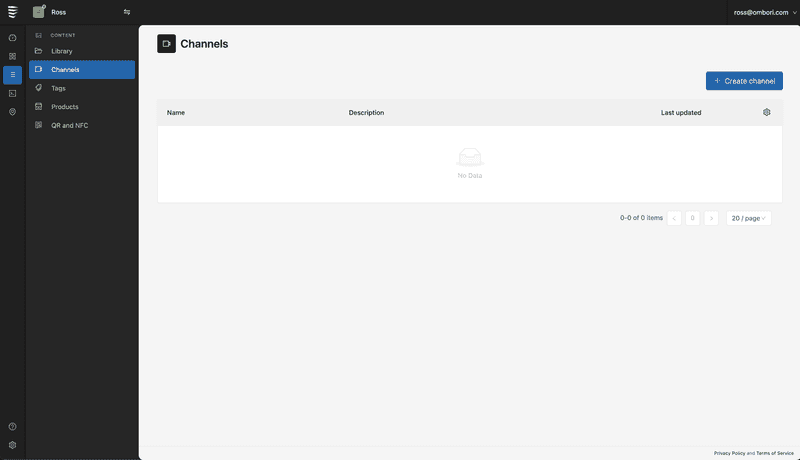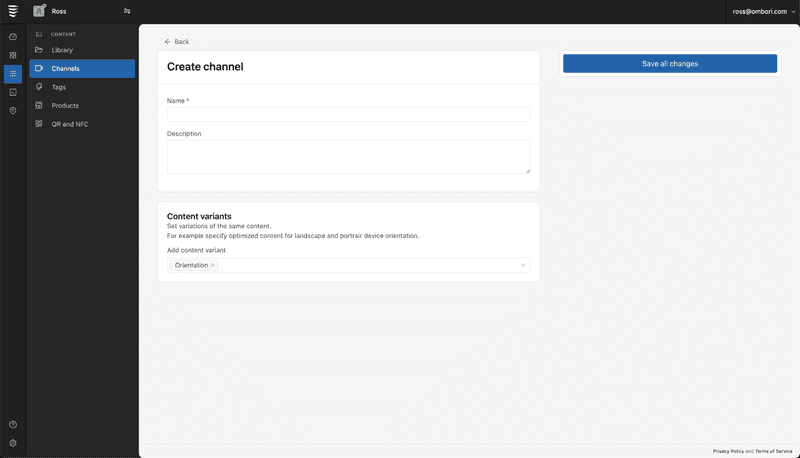Channels help you organize and distribute content effectively. They are built from Segments—individual pieces of content that are scheduled and targeted using tags. Channels provide a framework for content management by enabling structure, access control, and distribution.
Creating a Channel
Follow these steps to create a new Channel:
-
Navigate to Content → Channels and press the Create Channel button on the top right

-
Fill in the details for your new Channel. Some fields are required, while others are optional
 Required
Required- Name: a unique and descriptive name for your channel
Optional
- Description: Add more detail about your channel, eg the type of contet it will play
- Content Variants: Define tags to manage content variations for different contexts, such as device orientation or language. See below for more about Content Variants
-
Save all changes.
Content Variants
Content Variants allow you to tailor content for specific conditions or audiences, ensuring it fits different contexts. Variants are defined by tags—customized attributes like orientation or language.
Examples of Content Variants
Orientation Tag
Values: landscape, portrait
Example: A video displayed in a store might require both landscape and portrait versions to accommodate different screens.
Language Tag
Values: English, French, Spanish
Example: If your content is multilingual, you'll need variations for each language.
Stacked Variants
Combine multiple tags to handle more complex requirements.
Example: A store with devices in multiple orientations and languages would require content for every combination (e.g., landscape + English, portrait + French). By leveraging Content Variants, you ensure that your Channels deliver the right content, to the right audience, in the right format—every time.